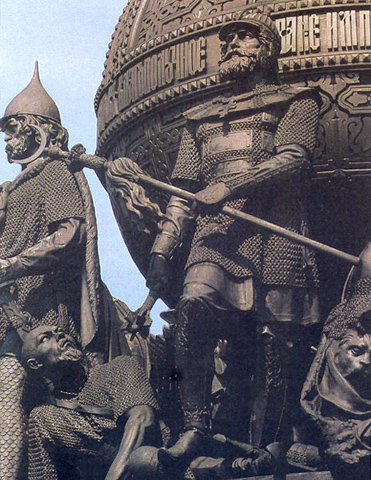Dmitry Donskoy (opera) on:
[Wikipedia]
[Google]
[Amazon]
 ''Dmitry Donskoy'' ''(russian: Дмитрий Донской''), also known as ''The Battle of Kulikovo (russian: Куликовская битва)'' was the first
''Dmitry Donskoy'' ''(russian: Дмитрий Донской''), also known as ''The Battle of Kulikovo (russian: Куликовская битва)'' was the first
 ''Dmitry Donskoy'' ''(russian: Дмитрий Донской''), also known as ''The Battle of Kulikovo (russian: Куликовская битва)'' was the first
''Dmitry Donskoy'' ''(russian: Дмитрий Донской''), also known as ''The Battle of Kulikovo (russian: Куликовская битва)'' was the first opera
Opera is a form of theatre in which music is a fundamental component and dramatic roles are taken by singers. Such a "work" (the literal translation of the Italian word "opera") is typically a collaboration between a composer and a libr ...
written by Anton Rubinstein
Anton Grigoryevich Rubinstein ( rus, Антон Григорьевич Рубинштейн, r=Anton Grigor'evič Rubinštejn; ) was a Russian pianist, composer and conductor who became a pivotal figure in Russian culture when he founded the Sa ...
. It has three acts and a libretto by Count Vladimir Sollogub
Count Vladimir Alexandrovich Sollogub (russian: link=no, Влади́мир Алекса́ндрович Соллогу́б; german: link=no, Woldemar Graf Sollogub (Sollohub); 20 August 1813 in St. Petersburg – 17 June 1882 in Bad Homburg) was ...
and Vladimir Zotov, based on a drama by Vladislav Ozerov. First performed in 1852, the opera, apart from its overture, is now lost.
Background
Rubinstein asked for a libretto from Sollogub, who had also worked on Glinka's successful opera '' A Life for the Tsar'', on what was ostensibly also a nationalist theme, the success ofDmitry Donskoy
Saint Dmitry Ivanovich Donskoy ( rus, Дми́трий Ива́нович Донско́й, Dmítriy Ivanovich Donskóy, also known as Dimitrii or Demetrius), or Dmitry of the Don, sometimes referred to simply as Dmitry (12 October 1350 – 1 ...
at the Battle of Kulikovo
The Battle of Kulikovo (russian: Мамаево побоище, Донское побоище, Куликовская битва, битва на Куликовом поле) was fought between the armies of the Golden Horde, under the command ...
(1380) against the commander of the Tatar
The Tatars ()Tatar
in the Collins English Dictionary is an umbrella term for different
in the Collins English Dictionary is an umbrella term for different
Golden Horde
The Golden Horde, self-designated as Ulug Ulus, 'Great State' in Turkic, was originally a Mongol and later Turkicized khanate established in the 13th century and originating as the northwestern sector of the Mongol Empire. With the fragme ...
, Mamai
Mamai (Mongolian Cyrillic: Мамай, tt-Cyrl, Мамай, translit=Mamay; 1325?–1380/1381) was a powerful military commander of the Golden Horde. Contrary to popular misconception, he was not a khan (king), but a warlord and a kingmaker ...
. However he ignored the historic elements in favour of a fairly routine operatic love story.
The overture was completed first and was performed at a concert in 1850. But Rubinstein faced trouble with the Russian censors, who forbade any stage presentation of Donskoy himself singing. Eventually the score was approved in 1851, and the first performance took place on 30 April 1852 at the Bolshoi Kamenny Theatre
The Saint Petersburg Imperial Bolshoi Kamenny Theatre (The Big Stone Theatre of Saint Petersburg, russian: Большой Каменный Театр) was a theatre in Saint Petersburg.
It was built in 1783 to Antonio Rinaldi's Neoclassical ...
in St. Petersburg
Saint Petersburg ( rus, links=no, Санкт-Петербург, a=Ru-Sankt Peterburg Leningrad Petrograd Piter.ogg, r=Sankt-Peterburg, p=ˈsankt pʲɪtʲɪrˈburk), formerly known as Petrograd (1914–1924) and later Leningrad (1924–1991), i ...
. The censors however insisted that the title be rendered as ''The Battle of Kulikovo''. Rubinstein wrote to his mother 'This is not so terrible. The public will gradually find out what the real names are'. The composer was pleased by the reception, although he complained about the quality of the singers: nonetheless he reported that 'The success was enthusiastic!' Taylor (2007), 34 However the opera had only four performances and does not seem to have been revived. Only the score of the overture has survived, together with one aria and some vocal parts in archives in St. Petersburg.
Synopsis
Donskoy wins the hand of Ksenia over his rival Tverskoy when he leads the victory over Mamai in the Battle of Kulikovo.Roles
References
;Notes ;Sources *Philip S. Taylor, ''Anton Rubinstein, A Life in Music'', Indianapolis, 2007. {{Authority control Operas 1852 operas Russian-language operas Operas by Anton Rubinstein Lost operas Operas set in Russia Operas set in the 14th century Operas based on real people Cultural depictions of Russian monarchs Cultural depictions of military officers